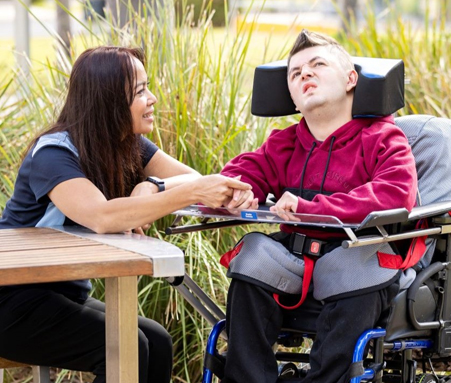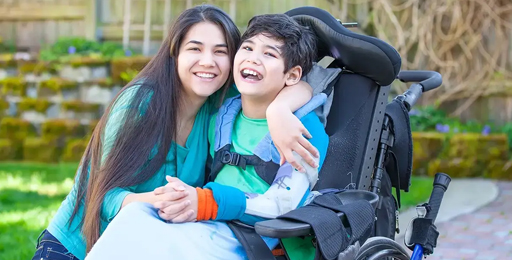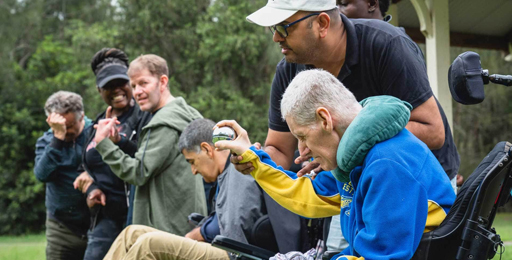Autism Spectrum Disorder (ASD)

Autism Spectrum Disorder (ASD) is a neurodevelopmental condition that affects communication, social interaction, and behavior. It is estimated to impact approximately one in 100 individuals worldwide, with varying degrees of challenges and strengths. While people with ASD may face unique difficulties, they also possess incredible potential when provided with the right support. In Australia, the National Disability Insurance Scheme (NDIS) plays a vital role in enhancing the lives of individuals with Autism Spectrum Disorder and their families by offering tailored support and resources to foster independence and overall well-being.
This article explores the different aspects of NDIS support for Autism Spectrum Disorder, emphasizing its significance, available services, and the positive impact on participants and their caregivers.
The NDIS is a government-funded initiative aimed at providing individuals with disabilities access to essential services and support systems. It is designed to promote independence, inclusion, and active participation in society, ensuring that individuals with disabilities can lead enriched and fulfilling lives.
For individuals with Autism Spectrum Disorder, the NDIS provides a structured approach to identifying needs, setting personal goals, and securing funding for necessary support. These services cover various aspects, including healthcare, specialized therapies, educational assistance, and social participation, all of which contribute to holistic development and improved quality of life.

Many individuals with Autism Spectrum Disorder experience sensory sensitivities. The NDIS provides access to occupational therapy and sensory integration programs to help manage sensory challenges and improve daily functioning.

Social interactions can be challenging for individuals with ASD. The NDIS supports programs that focus on emotional regulation, social skills training, and peer interaction to enhance confidence and communication.

NDIS funding can assist with specialized learning programs, classroom support, and assistive technology to ensure individuals with Autism Spectrum Disorder receive an inclusive and tailored education.

Behavioral interventions, such as Applied Behavior Analysis (ABA) or Positive Behavior Support (PBS), are funded by the NDIS to help individuals develop coping strategies, reduce anxiety, and manage behavioral challenges.

Eligibility for NDIS support is assessed based on factors such as age, residency, and the impact of the condition on daily life. Individuals with Autism Spectrum Disorder often qualify due to the challenges they face in communication, social interaction, and independent functioning.
Age: The applicant must be under 65 years old when accessing the scheme.
Residency: Individuals must be Australian citizens, permanent residents, or holders of a Protected Special Category Visa.
Disability Impact: The condition must cause substantial functional limitations in areas such as communication, learning, mobility, or self-care, affecting the ability to manage daily activities independently.
Families can apply for NDIS support through a structured process that includes submitting necessary documentation, attending an initial planning meeting, and developing a personalized NDIS plan tailored to the individual's needs.
The NDIS provides a variety of supports tailored to meet the unique needs of individuals with Autism Spectrum Disorder, helping them enhance their skills, independence, and quality of life.
Access to sensory-friendly equipment, such as weighted blankets and fidget tools, to help manage sensory sensitivities.
Occupational therapy to develop coping mechanisms for sensory overload in different environments.
Positive Behavior Support (PBS) plans to address anxiety, meltdowns, and emotional regulation.
Psychological counseling to help individuals manage stress, social anxiety, and emotional challenges.
Job coaching and skill-building programs to support individuals in finding and maintaining suitable employment.
Workplace modifications and employer support to create an autism-friendly work environment.
Alternative communication methods, such as picture exchange systems (PECS) and augmentative communication devices.
Creating a well-structured NDIS plan for individuals with Autism Spectrum Disorder ensures they receive the right support to enhance their development and quality of life. Here are key steps to consider:

Assessing sensory sensitivities, social interaction difficulties, and communication needs.
Identifying areas where extra support is required, such as learning, behavior management, or daily routines.
Incorporating therapies like Applied Behavior Analysis (ABA), speech therapy, and occupational therapy to build essential skills.
Ensuring access to early learning programs tailored to autistic individuals.
Encouraging participation in social skills groups and community activities to foster inclusion.
Providing support for structured recreational programs that cater to neurodiverse individuals.
Integrating assistive technology, modified curriculum strategies, and specialized educators.
Supporting transitions between different educational stages, from early childhood to higher education or vocational training.
Implementing life skills training in areas like personal care, budgeting, and using public transport.
Supporting pathways to employment with job coaching, workplace modifications, and skill development.
Service providers play a crucial role in implementing NDIS plans for individuals with Autism Spectrum Disorder.
They offer specialized support to help participants develop essential skills and improve their quality of life.

Providing speech therapy to enhance communication and language skills.
Delivering occupational therapy to improve sensory processing, motor skills, and daily living activities.
Offering behavioral therapy to support emotional regulation and social interactions.
Assisting with school integration and adapting learning strategies to individual needs.
Providing tutoring and specialized programs to enhance cognitive and academic development.
Offering personal care support for routines like dressing, meal preparation, and hygiene.
Providing respite care services to support families and caregivers.
Facilitating social skills training and group activities to encourage interaction.
Organizing recreational programs that promote inclusion and confidence building.
While the NDIS offers crucial assistance to individuals with Autism Spectrum Disorder (ASD),
several barriers and considerations can affect accessibility and effectiveness.

Many families struggle to understand how NDIS funding can be utilized for autism-specific needs.
Misconceptions about eligibility and the types of support available may prevent individuals from applying.
Autism is a spectrum, meaning each individual has unique requirements, making it difficult to create one-size-fits-all plans.
Some NDIS plans may not adequately address sensory processing issues, behavioral support, or communication needs.
There is a high demand for therapists and autism specialists, leading to service gaps.
In regional or remote areas, families may struggle to find suitable providers, limiting access to essential interventions.
Many individuals with ASD require a combination of medical, educational, and therapeutic supports, which can be difficult to coordinate within a single NDIS plan.
Communication between schools, therapists, and caregivers is essential but often lacks a structured approach.
While early intervention is a primary focus, long-term planning for independent living, employment, and social integration is sometimes overlooked.
Many families require additional guidance on how to adapt NDIS support as their child grows.
Addressing these challenges requires improved awareness, better coordination among service providers, and more flexible support plans tailored to the diverse needs of individuals on the autism spectrum.
The NDIS has made a profound difference in the lives of individuals with Autism Spectrum Disorder (ASD), helping them achieve greater independence, communication skills, and social inclusion. Many families have shared inspiring success stories, such as:

A young child with ASD, who previously struggled with verbal communication, learned to express emotions and needs through speech therapy and assistive communication devices, leading to improved interactions at home and school.
A teenager on the autism spectrum developed essential life skills through occupational therapy, enabling them to manage daily tasks like cooking and personal hygiene, fostering greater independence.
An adult participant with ASD secured a job in a structured and supportive workplace with the help of vocational training and workplace adjustments, boosting confidence and financial stability.
A family received behavioral support services that helped them better understand their child’s sensory needs, leading to a more harmonious home environment and reduced stress for both the child and caregivers.
Several organizations and resources are available to support individuals with Autism Spectrum Disorder (ASD)
and their families in navigating the NDIS:

Provides assessments, therapy services, and educational resources for individuals with ASD.
Offers workshops and advocacy services to help families maximize NDIS benefits.
State-based autism organizations provide tailored guidance on NDIS services and funding options.
Community-based programs offer specialized support for different age groups.
Assists individuals and families in understanding eligibility criteria, application processes, and funding allocation.
Provides direct guidance on managing NDIS plans effectively.
Parents and caregivers can connect with others facing similar challenges to share insights and advice.
Online and in-person forums offer emotional support and practical strategies for navigating daily life with ASD.
The NDIS plays a transformative role in supporting individuals with Autism Spectrum Disorder by offering personalized services that address their unique needs and aspirations. Through targeted interventions, therapy programs, and community engagement, the scheme enables participants to lead more independent and fulfilling lives. Continued advocacy, awareness, and collaboration among families, professionals, and policymakers are essential to ensuring that NDIS support remains effective and accessible for individuals with ASD across Australia.

Immediate Care is here to empower individuals and their families, providing the support they need to live fulfilling lives. Our team’s dedication and expertise make us a leader in the field of disability services.
For more information or to discuss how we can support you, contact Immediate Care today.
Woodstock, Victoria 3751